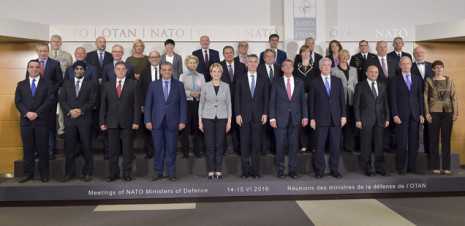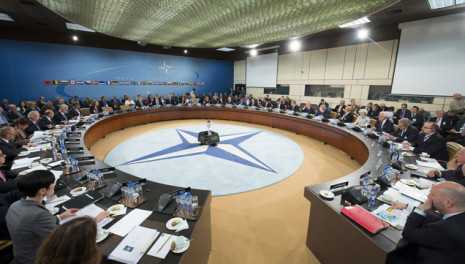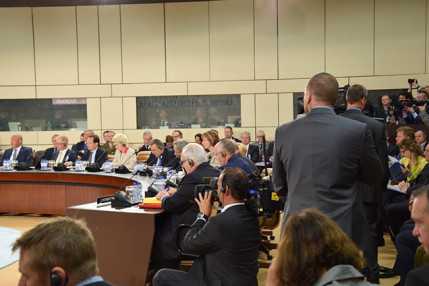NATO Paves Way for Warsaw Summit
Szöveg: Ministry of Defence | 2016. június 17. 9:00The two-day Meeting of NATO Ministers of Defence, held on 14–15 June in Brussels, has ended. It was aimed at paving the way for the decisions to be taken at the upcoming NATO Summit to be held in Warsaw on 8–9 July.

The ministers also assessed some recent trends in the defence budgets of member countries. As it is known, at the NATO Wales Summit held two years ago, all allies agreed that they will “aim to move towards the NATO guideline to spend a minimum of 2% of their Gross Domestic Product on defence."
In 2014, Hungary started to increase its defence budget systematically, and has continued doing so consistently since. Tamás Vargha emphasized that “With this, in comparison with the other 27 allies, our country is among those that are making good progress in fulfilling their commitments made at the Wales Summit." He added that the previous week, the government of Hungary had made a decision about continuing to implement a gradual increase in the defence budget over the following ten years, so that it will approach the 2% target by 2026.
According to the deputy minister, the decision taken at the meeting about cyber defence has strategic significance and long-term effects, because from now on, NATO considers cyberspace a potential theatre of war and “cyber operations as part of its war domain along with land, sea and air operations".

Mr. Vargha said it is important that the allies officially exchanged views with Ukrainian Defence Minister Stepan Poltorak at the Meeting of the NATO–Ukraine Commission. He noted that NATO “remains firm in its support to Ukraine’s sovereignty and territorial integrity", and continues to support the Ukrainian defence reforms.
The program of the meeting included discussions with representatives from Finland and Sweden, two of NATO’s Advanced Partners, which were also attended by High Representative of the European Union for Foreign Affairs and Security Policy Federica Mogherini. According to Mr. Vargha, the ongoing cooperation between NATO and EU has special significance in connection with the migration crisis, as the capabilities of these two organizations can effectively complement each other in dealing with waves of migration coming from the Mediterranean and the Aegean Sea. The ministers also explored further ways for NATO to contribute to the fight against terrorism in the regions of North Africa and the Middle East.

Deputy Minister of Defence Tamás Vargha reaffirmed that NATO will carry forward the Resolute Support Mission (RSM) in Afghanistan in 2017. He was of the opinion that the Afghan National Army (ANA) and the Afghan National Police (ANP) still need support from NATO and the international community. As he said, Hungary has a direct interest in maintaining a stable security situation in the country and in its further improvement, because it can help reduce the number of migrants leaving Afghanistan for Europe. For this reason, next year Hungary will continue with its contribution of a 100-strong contingent to the Resolute Support Mission in Afghanistan.
In addition to the above, the ministers also addressed some current issues in NATO’s nuclear policy.
Photos by nato.int